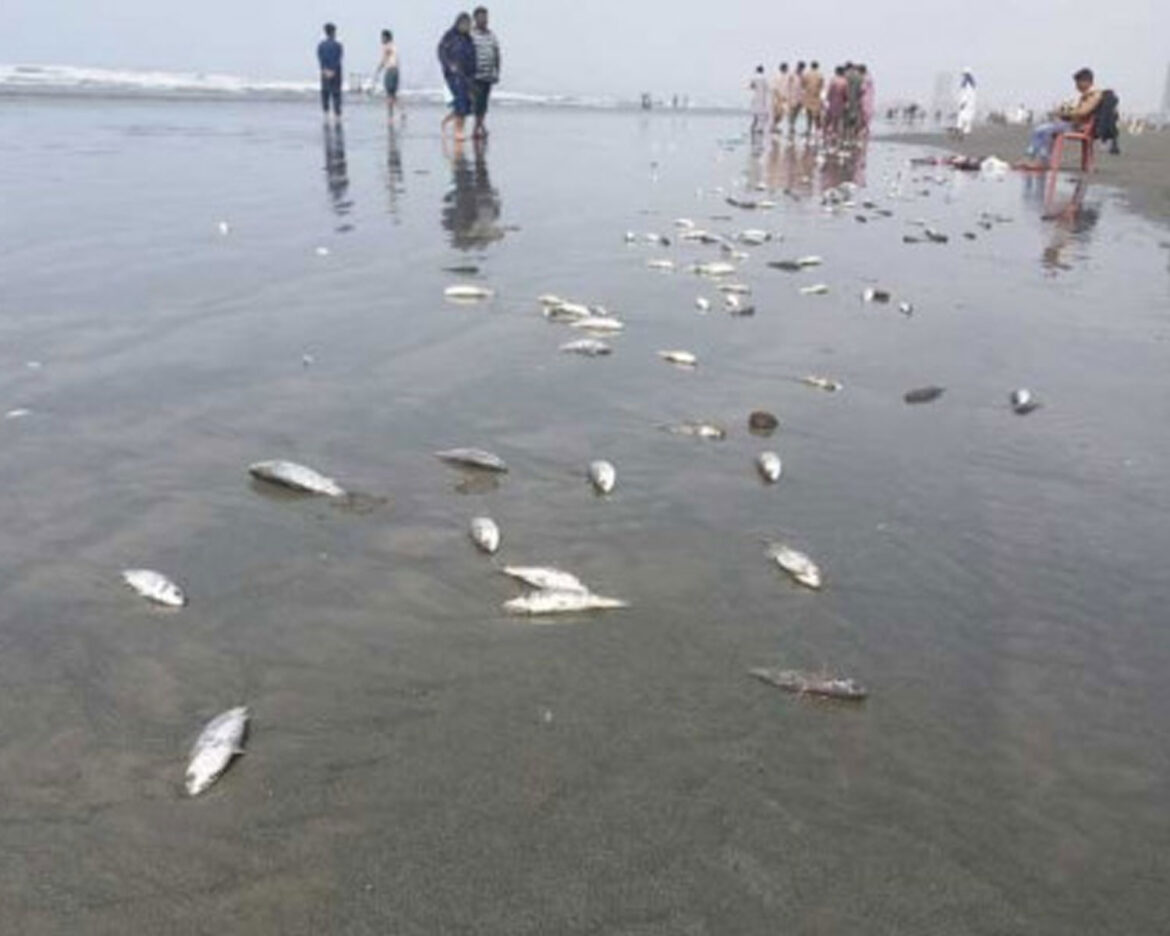A large number of dead fish have washed ashore near Karachi Port at Keamari, driven by heavy rains, strong winds, and sea turbulence. Local fishermen have begun collecting the fish, which they plan to sell to poultry feed factories.
According to Muhammad Moazzam Khan, a technical advisor at the World Wide Fund for Nature (WWF), the dead fish belong to two species known as mullet and spotted scat, locally referred to as boi and seriyoon. “Monsoon rains have caused sediments from the mangrove areas to mix with seawater, leading to contamination,” Khan explained.
Khan warned that while the fish may appear fresh, they could be highly contaminated and pose significant health risks if consumed. “These marine creatures have died due to abnormal sea conditions, so consuming them directly could be harmful,” he added.
The situation has been exacerbated by the looming threat of Cyclone Asna. The Pakistan Meteorological Department (PMD) has declared the next six hours as critical, with the cyclone currently located 200 kilometers south of Karachi. Sahibzada Khan, Director General of the PMD, stated in a press conference that Cyclone Asna has transformed into a deep depression upon reaching Rajasthan.
“This is the first time in 60 years, since 1964, that such a cyclone has formed. It may intensify into a tropical storm within the next six hours,” Khan said. He noted that the severe low-pressure system is likely to evolve into a cyclone, potentially bringing strong winds and heavy, torrential rain across Karachi Division, Tharparkar, Badin, Thatta, Sujawal, Hyderabad, and other districts in Sindh.
Certain areas of Balochistan might also be affected, further complicating the situation. As the threat of Cyclone Asna looms large, authorities are urging the public to take precautions and avoid consuming the dead fish, which may pose serious health risks.



